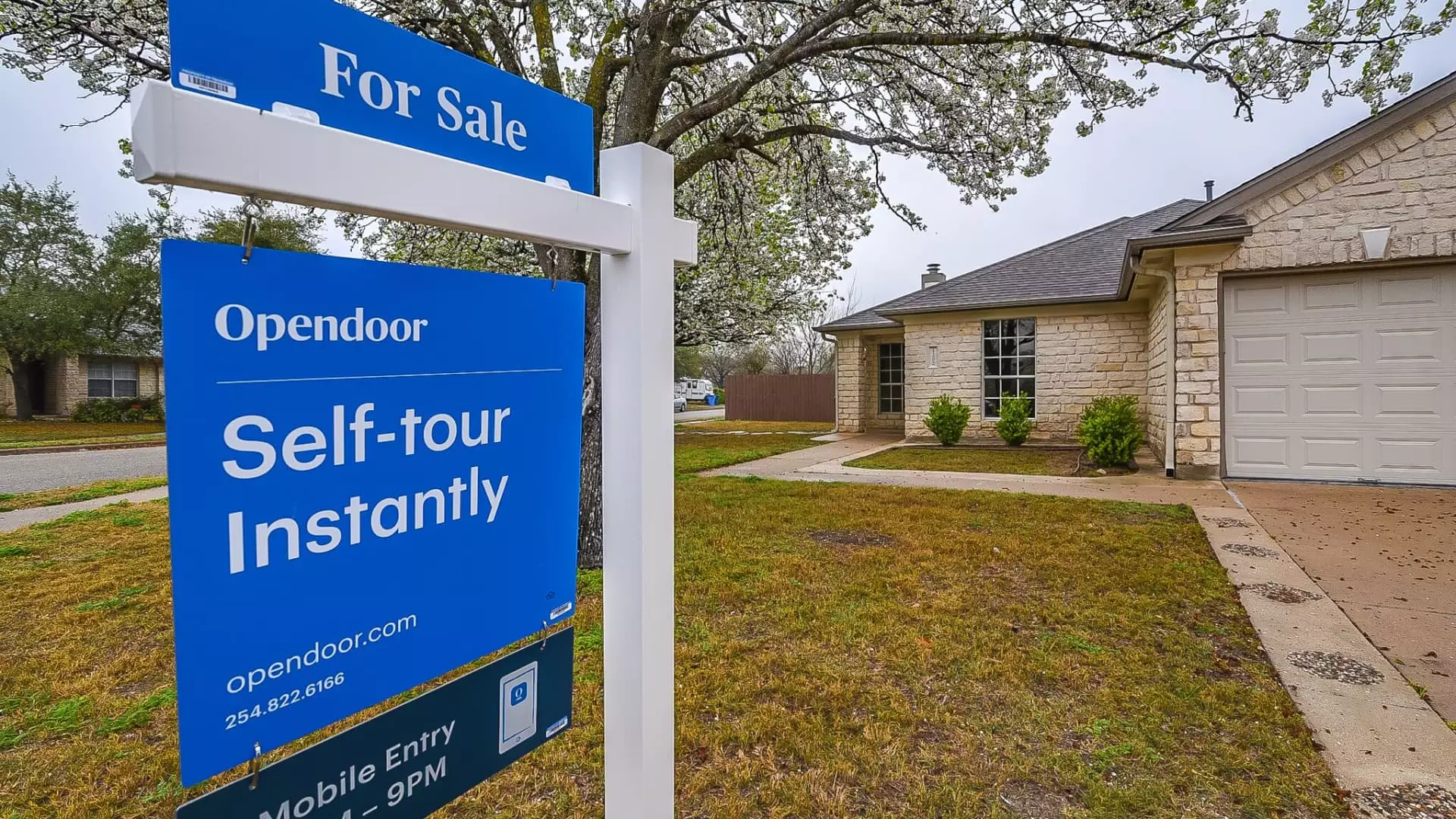In recent weeks, Opendoor’s stock spiral has captured the attention of investors and skeptics alike, soaring almost fivefold in a matter of weeks. Such rapid appreciation in share price, fueled by aggressive trading volumes, is rarely rooted in genuine business strength. Rather, it reflects a volatile rush fueled by speculation, a phenomenon that often blinds investors from recognizing underlying issues. This surge seems more like a speculative bet than a signal of long-term viability, especially considering the company’s fragile financial health and the broader economic environment. When stock prices soar without supportive fundamentals, it serves as a cautionary tale about the dangers of herd behavior and the illusion of quick gains.
Delusions of a Turnaround Amidst Waning Fundamentals
Despite the recent impressive gains, Opendoor’s core business remains under significant pressure. The company’s financials tell a stark story: substantial revenue declines, persistent losses, and shrinking market opportunities. The fact that Opendoor has had to dance around concepts like reverse splits and compliance issues reveals a fragile operation desperately trying to maintain relevance. The promise of a strategic pivot—shifting from capital-intensive iBuying to a less demanding referral model—sounds promising on paper but remains unproven and distant from delivering tangible results. The optimism of a potential recovery feels misplaced until genuine demand and profitability are restored rather than just hoping for a future rebound built on hope rather than evidence.
Market Manipulation or Genuine Opportunity?
The involvement of hedge fund managers like Eric Jackson is indicative of the market’s willingness to latch onto narratives of rebirth. Jackson’s bold prediction of a stock price reaching $82 seems more aspirational than feasible, considering the current state of the business. His optimism hinges on the assumption that market conditions will improve, revenue will accelerate, and investor sentiment will return. But this perspective neglects the systemic challenges—rising interest rates, declining home sales, and a deteriorating housing market—that threaten to undermine such hopes. Relying on market speculation rather than operational improvements is the classic gamble of short-term traders, not long-term investors. The risky nature of these bets underscores a fragile confidence that may evaporate with the slightest economic headwinds.
The Reality Behind the Hype: A Company in Transition
Opendoor’s attempt to pivot away from traditional iBuying to a lesser capital-intensive model may mark a strategic evolution, but the evidence remains thin. Increased visibility and storytelling may help in shaping a narrative, but they do little to fix the fundamentals. The company’s own guidance for the upcoming quarters projects a steep decline in revenue and acquisition volume, illustrating that the housing market’s woes are far from over. The decline in home purchases, exacerbated by high mortgage rates and economic uncertainty, directly hampers Opendoor’s core business. Without a meaningful turnaround in housing demand, these strategic shifts risk becoming mere window dressing rather than a pathway to sustainable growth.
The Illusion of Optimism and the Need for Real Change
While the company’s leadership gravitates toward creating an image of renewal, the market remains skeptical. The recent rally appears disconnected from reality, driven more by trading momentum than actual business improvement. As much as Opendoor’s executives insist that they are “listening” and “changing strategy,” such statements ring hollow without measurable progress. For genuine transformation, the company must demonstrate that it can adapt to the realities of the housing cycle, improve its margins, and reduce reliance on speculative growth. Until then, the current exuberance is more a testament to market volatility and investor sentiment’s fickle nature than a sign of real strength. Investors need to look beyond the surface-level optimism and critically evaluate whether the company’s long-term prospects justify the hype or if they are caught in yet another financial mirage.

